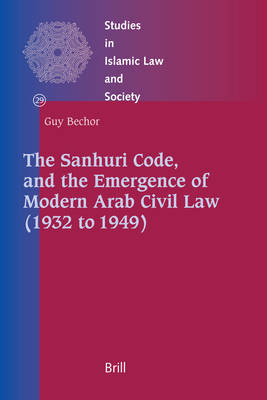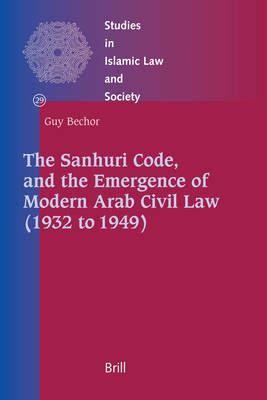
- Afhalen na 1 uur in een winkel met voorraad
- Gratis thuislevering in België vanaf € 30
- Ruim aanbod met 7 miljoen producten
- Afhalen na 1 uur in een winkel met voorraad
- Gratis thuislevering in België vanaf € 30
- Ruim aanbod met 7 miljoen producten
Zoeken
The Sanhuri Code, and the Emergence of Modern Arab Civil Law (1932 to 1949)
Guy Bechor
€ 259,45
+ 518 punten
Omschrijving
The book examines the drafting of the Egyptian Civil Code of 1949, exposing its unknown sociological strata, under the leadership of Dr. 'Abd al-Razzāq al-Sanhūrī, one of the most prominent jurist to emerge to date in the Arab world.
Specificaties
Betrokkenen
- Auteur(s):
- Uitgeverij:
Inhoud
- Aantal bladzijden:
- 358
- Taal:
- Engels
- Reeks:
- Reeksnummer:
- nr. 29
Eigenschappen
- Productcode (EAN):
- 9789004158788
- Verschijningsdatum:
- 13/11/2007
- Uitvoering:
- Hardcover
- Formaat:
- Genaaid
- Afmetingen:
- 168 mm x 246 mm
- Gewicht:
- 703 g

Alleen bij Standaard Boekhandel
+ 518 punten op je klantenkaart van Standaard Boekhandel
Beoordelingen
We publiceren alleen reviews die voldoen aan de voorwaarden voor reviews. Bekijk onze voorwaarden voor reviews.








